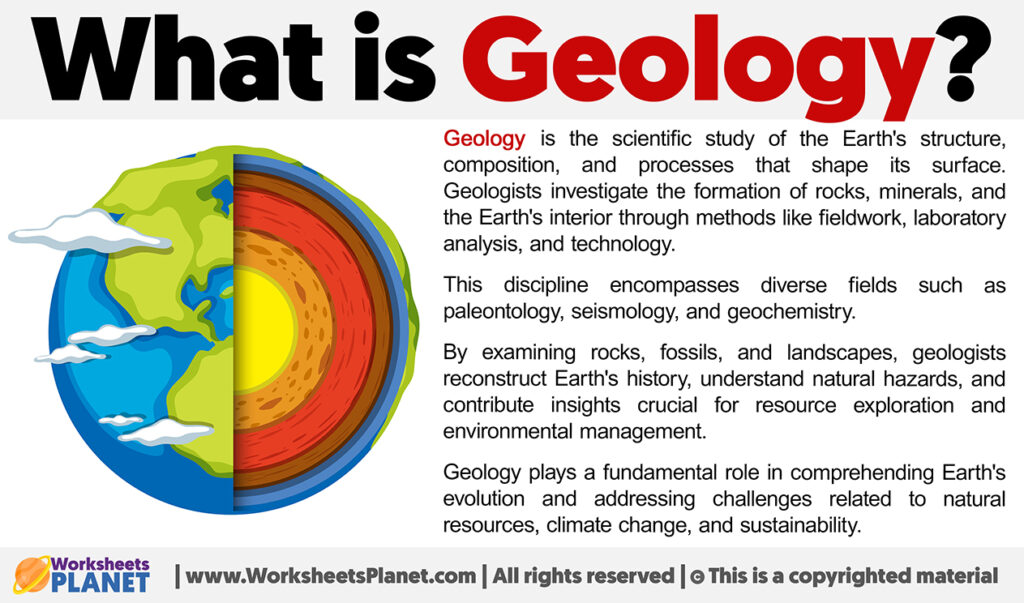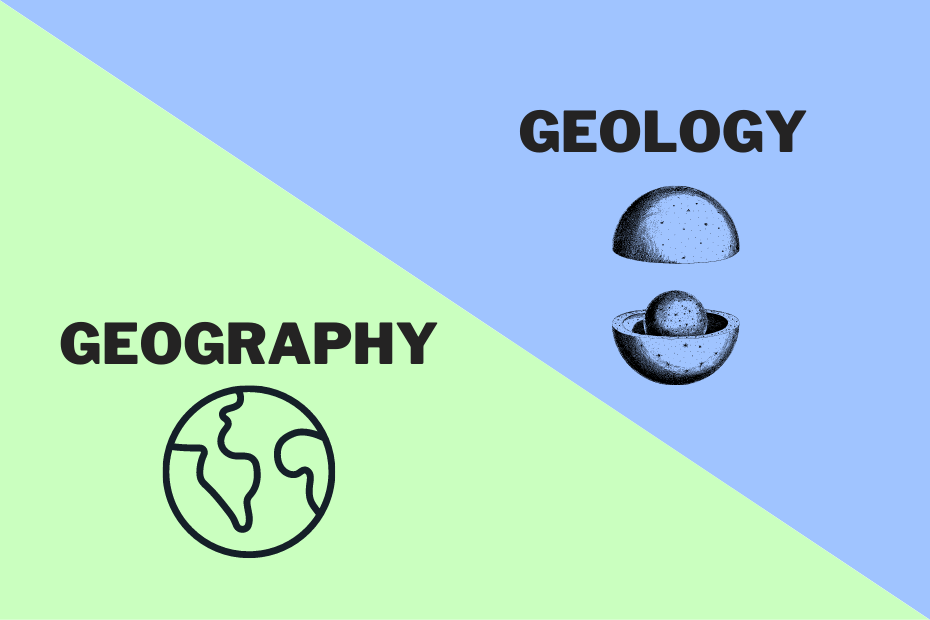The Earth’s Story: Is Geology a Hard Science? (Seriously, Let’s Talk Rocks)
A Deep Dive into the Scientific Rigor of Earth Studies (and Why It Matters)
So, you’ve probably wondered, maybe while staring at a particularly stubborn rock, “Is geology, like, *actually* a hard science?” It’s a fair question, right? We see those physics and chemistry folks with their fancy equations and lab coats, and then there’s the geologist, squinting at a cliff face and muttering about “strata.” But hold on, there’s more to it than meets the eye. Think of geology as the ultimate detective story, but the crime scene is the entire planet, and the clues are millions of years old.
Basically, geology’s about understanding Earth – its guts, its skin, its whole crazy history. Now, we can’t exactly run experiments on the Earth’s core (trust me, we’ve tried… kidding!). So, geologists become masters of observation, like Sherlock Holmes with a rock hammer. They piece together evidence from fossils, rock formations, and even the way mountains wiggle. It’s like trying to figure out what happened at a party after everyone’s gone home, and all you have are some spilled drinks and a half-eaten sandwich. It’s a puzzle, but a solvable one.
Don’t be fooled, though. Geology isn’t just staring at pretty rocks. It’s got a serious scientific backbone. They use all the cool stuff from physics and chemistry – like figuring out how old rocks are with radioactive dating, or understanding how water flows underground. They have all these fancy tools that let them look inside the Earth, like a giant X-ray. Think of it as using a super-powered flashlight to see the Earth’s secrets. It’s pretty neat.
And here’s the kicker: geologists don’t just make stuff up. They have to prove their theories, just like any other scientist. Remember plate tectonics? It took ages for people to believe it, but the evidence kept piling up. They make predictions, too, like where to find oil or how likely an earthquake is. It’s not magic; it’s science. So, yeah, geology’s pretty darn rigorous, even if it involves a bit more mud than your average lab experiment.

The Role of Observation and Interpretation (Or, Why Rocks Are Like Storybooks)
Unraveling Earth’s Mysteries with Scientific Methodology (and a Bit of Gut Feeling)
Okay, so here’s where things get a little… artsy? Geologists have to be good at reading between the lines, or, in this case, between the layers of rock. The Earth’s a messy place, always changing, so the clues are often jumbled. It’s like trying to read a book that’s been through a blender. Sometimes it takes a bit of educated guesswork. But it’s not just wild guesses; it’s informed by years of study and experience. It’s like learning to read a language only rocks speak.
They’re like historians, but for the planet. They’re trying to figure out what happened millions of years ago, with only the scraps of evidence left behind. It’s like putting together a giant jigsaw puzzle where you’re missing half the pieces, and some of the pieces are shaped weird. You have to use your brain, your logic, and a bit of intuition. It’s a real mental workout.
Luckily, they’ve got some seriously high-tech toys these days. They can analyze rocks down to the atom, which makes those interpretations way more accurate. It’s like having a super-powered magnifying glass that lets you see the tiniest details. This helps to make sure that the stories they tell about the earth are actually true.
And they use computers to build models of how the Earth works, which helps them predict what might happen in the future. Like, what if the sea levels rise? They can run simulations to see what might happen. It’s like playing a video game, but the game is the Earth, and the stakes are real. So, while interpretation is important, it’s always backed up by solid science.

The Importance of Predictability and Testing (Can Geology See the Future?)
How Geology Stands Up to Scientific Scrutiny (and Sometimes Gets It Right)
Here’s the thing about science: it’s gotta make predictions. And guess what? Geology does that. They can tell you where earthquakes are likely to happen, even if they can’t say exactly when. It’s like knowing a storm is coming, even if you don’t know the exact time it will hit. That’s pretty useful, right?
They’re also really good at finding stuff. Like, oil, minerals, you name it. They know where to look because they understand how the Earth works. It’s like being a treasure hunter, but instead of a map, you have a deep understanding of the planet. And they get better and better at this. They learn from the past and apply it to the future.
And let’s not forget climate change. Geologists are like the Earth’s historians, and they can tell us what the climate was like in the past. They use ice cores and other clues to reconstruct past climates. It’s like reading the Earth’s diary. This helps us understand what’s happening now and what might happen in the future.
And when they’re wrong, they admit it and try again. That’s how science works. They test their ideas, and if they don’t hold up, they change them. Like how plate tectonics was a crazy idea until it wasn’t. It’s a process of constant learning and improvement.

The Interdisciplinary Nature of Geology (It’s a Team Effort)
Bridging the Gap Between Disciplines (Because Earth’s Complicated)
Geology’s like a big, messy family, pulling in all sorts of other sciences. They need physics to understand how the Earth moves, chemistry to analyze rocks, and biology to study fossils. It’s like a superhero team, each with their own special powers. They all work together to understand the Earth.
Take paleontology, for example. It’s half geology, half biology. They study fossils to see how life has changed over time. It’s like reading a history book, but the characters are dinosaurs and trilobites. It’s a wild ride.
And then there’s environmental geology, which is all about solving real-world problems. Like, how to clean up pollution or prevent landslides. They use their knowledge of the Earth to make the world a better place. It’s like being a doctor for the planet.
And with computers and fancy software, they can do even more. They can build models of the Earth’s systems and simulate how they might change. It’s like having a crystal ball, but it’s based on science, not magic. It’s a really powerful tool.
FAQ: Common Questions About Geology (Let’s Clear Some Things Up)
Addressing Your Earthly Queries (Because You’re Curious)
Q: Is geology just about rocks?
A: Nah, it’s about the whole Earth – rocks, fossils, water, mountains, everything! It’s like a full-body checkup for the planet. It’s way more than just rocks.
Q: Can geologists predict earthquakes?
A: They can tell you where they’re likely to happen, but not exactly when. It’s like knowing a storm’s coming, but not the exact time. It’s a tricky business.
Q: How does geology help with climate change?
A: They study past climates to understand how the Earth has changed before. It’s like looking at the Earth’s past weather reports. It helps us see the bigger picture.
Q: What jobs can you get with a geology degree?
A: You could find oil, clean up pollution, study dinosaurs, or even teach others about the Earth. It’s a pretty versatile degree. It’s like having a key to a bunch of different doors.
